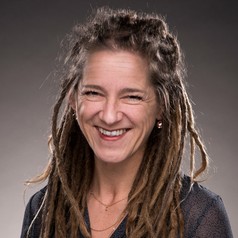The crime of modern slavery has received much attention in the last few years. The British government introduced the Modern Slavery Act in 2015, and the prime minister, Theresa May, said she wanted “tough new penalties to put slave masters behind bars where they belong”.
But what exactly do we mean by “modern slavery”? According to the UK’s Anti-Slavery Commissioner, modern slavery is human trafficking. But they are not the same thing – and putting them under the same title puts some victims at risk of being ignored.
The term “modern slavery” invokes a moral outrage that no one would disagree with. There are frequent news stories of vulnerable people being forced to work in appalling conditions and “slave drivers” being prosecuted for labour exploitation. The new focus on labour exploitation requires businesses to demonstrate supply chain transparency and produce “modern slavery statements” to show that it is not taking place in their companies.
But this focus also detracts from other forms of trafficking that are taking place. Child trafficking, in particular, remains hidden by all the attention focused on modern slavery. Children are not likely to be visible in labour markets, which are dominated by adults – a factor exacerbated by the clandestine operations of traffickers exploiting children within private homes, cannabis factories or brothels.
We already know that children and young people who are trafficked are not just exploited for their labour. Children can be bought, sold and resold by abusers who mistreat them sexually and physically, or use them to commit crime.
We need to uncover the exploitation and harm of children in forms which are not yet recognised as child trafficking. Children being sold the dream of modelling contracts in London, Paris or Milan, for example, who instead experience drug abuse, sexual exploitation and rape.
The present economic focus of modern slavery is far too narrow and adult-focused.
The UK has just started to make inroads into understanding what human trafficking is, how it happens, the impact on victims and the many forms it can take. So why change what we call it?
An opportunity missed
The Modern Slavery Act was an opportunity to make it easier for victims to come forward. But the legislation took a different direction, focusing on prosecuting those abusing labour for profit.
It also introduced tougher penalties for traffickers and gangmasters – yet shockingly, more victims were being prosecuted for crimes associated with trafficking than traffickers. Later, in response to concerns that victims continued to be criminalised, the Act introduced a statutory defence clause for them.
Yet for children, that clause involves a “reasonable person test”, which places onus on the children themselves to provide evidence of their trafficking, in order to access protection from prosecution. But how can a child prove they were psychologically manipulated, coerced or sold a convincing story of the hope of better life opportunities?
New research with children who have been trafficked has highlighted that a system which is meant to support victims remains focused on immigration and prosecution. This approach does not help children, or support them to escape conditions of slavery.
In some situations, when children have come forward to the police or immigration officials, they have been not been believed and instead been left in the hands of traffickers – even when the children were explicitly stating they were being hit, beaten, used or sold for sex. Children are arrested and prosecuted for trafficking-related crimes and some end up in adult prisons.
Until this changes, children will remain hidden and continue to suffer multiple and repeated abuse. Urgent reform is needed.
The research with trafficked children also highlighted that when they approached frontline agencies for help, they were too often met with racism and xenophobia. They felt they were not listened to and not believed in an immigration-driven system. Yet the Home Office, with its economic and immigration focus, continues to be responsible for tackling “modern slavery” including child trafficking.
The system is not helping. We need to listen to what victims of trafficking abuse are actually telling us. In the UK, the Department for Education should urgently take control of child trafficking as a child protection and welfare problem to better address the harm and abuse children suffer.
Child trafficking is not a migration or immigration issue – and the motive for dealing with it should not be economic or prosecution focused. Children need help from adults to stop abuse and exploitation. Their protection should be the priority above all other matters.
 Alinka Gearon does not work for, consult, own shares in or receive funding from any company or organisation that would benefit from this article, and has disclosed no relevant affiliations beyond their academic appointment.
Alinka Gearon does not work for, consult, own shares in or receive funding from any company or organisation that would benefit from this article, and has disclosed no relevant affiliations beyond their academic appointment.



 Nasdaq Proposes Fast-Track Rule to Accelerate Index Inclusion for Major New Listings
Nasdaq Proposes Fast-Track Rule to Accelerate Index Inclusion for Major New Listings  BTC Flat at $89,300 Despite $1.02B ETF Exodus — Buy the Dip Toward $107K?
BTC Flat at $89,300 Despite $1.02B ETF Exodus — Buy the Dip Toward $107K?  FxWirePro- Major Crypto levels and bias summary
FxWirePro- Major Crypto levels and bias summary  JPMorgan Lifts Gold Price Forecast to $6,300 by End-2026 on Strong Central Bank and Investor Demand
JPMorgan Lifts Gold Price Forecast to $6,300 by End-2026 on Strong Central Bank and Investor Demand  Elon Musk’s Empire: SpaceX, Tesla, and xAI Merger Talks Spark Investor Debate
Elon Musk’s Empire: SpaceX, Tesla, and xAI Merger Talks Spark Investor Debate 































